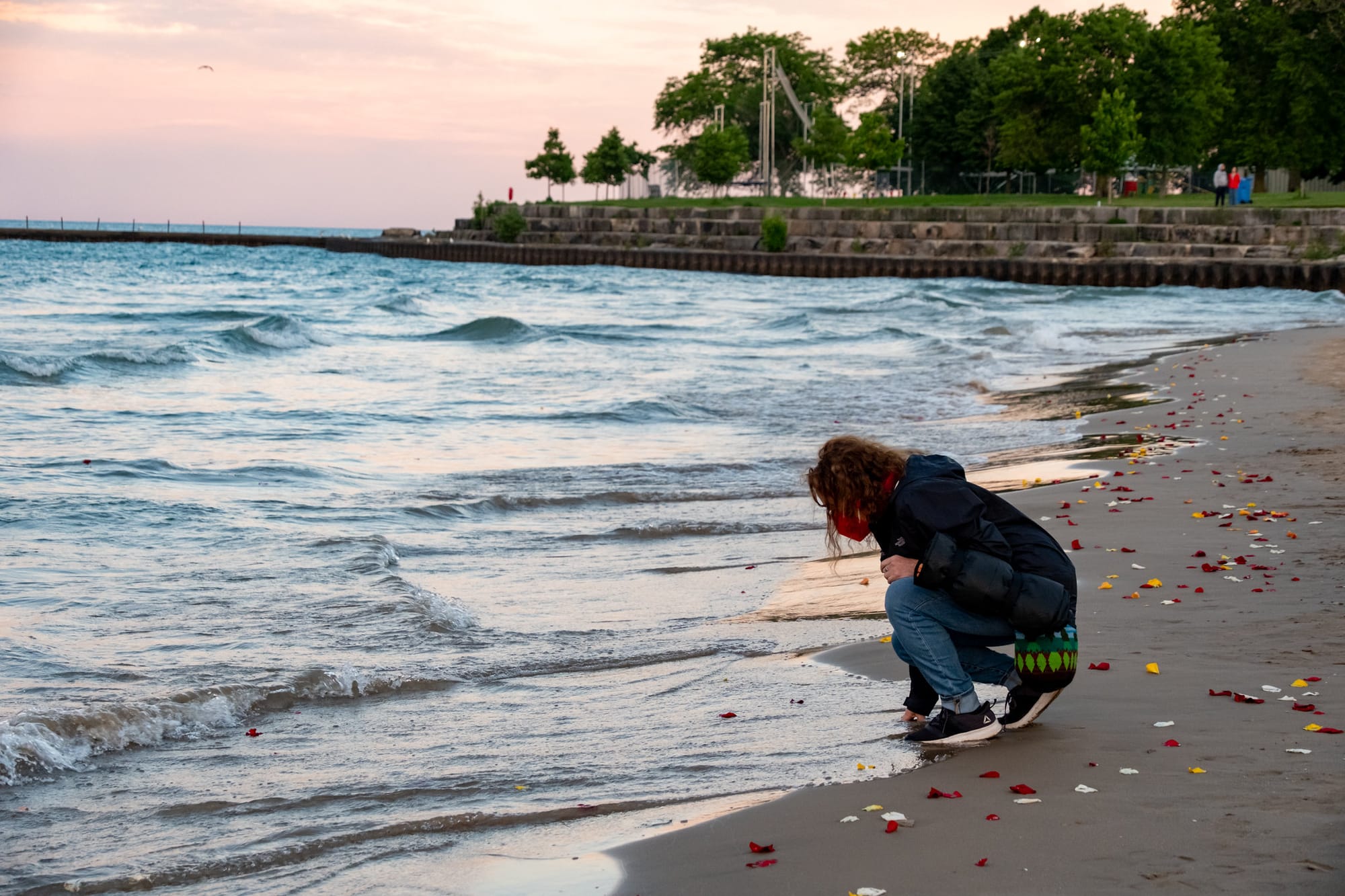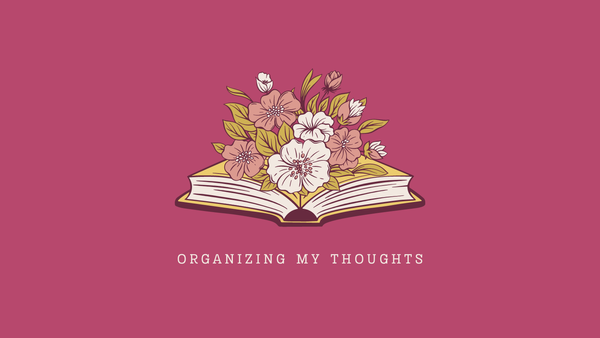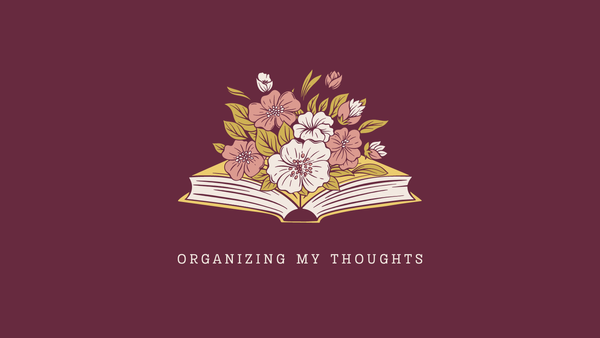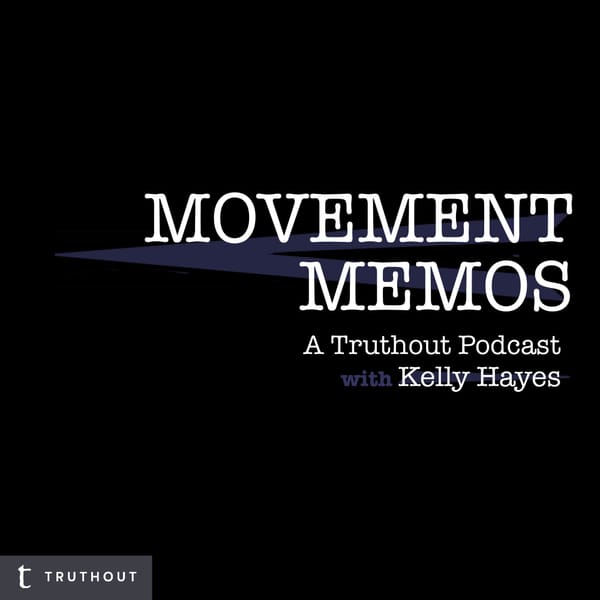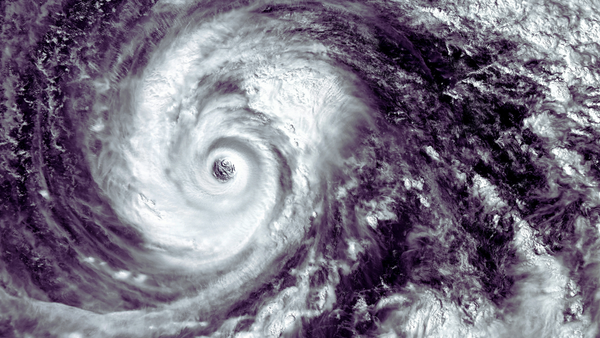Nurturing The Tender Parts of Yourself
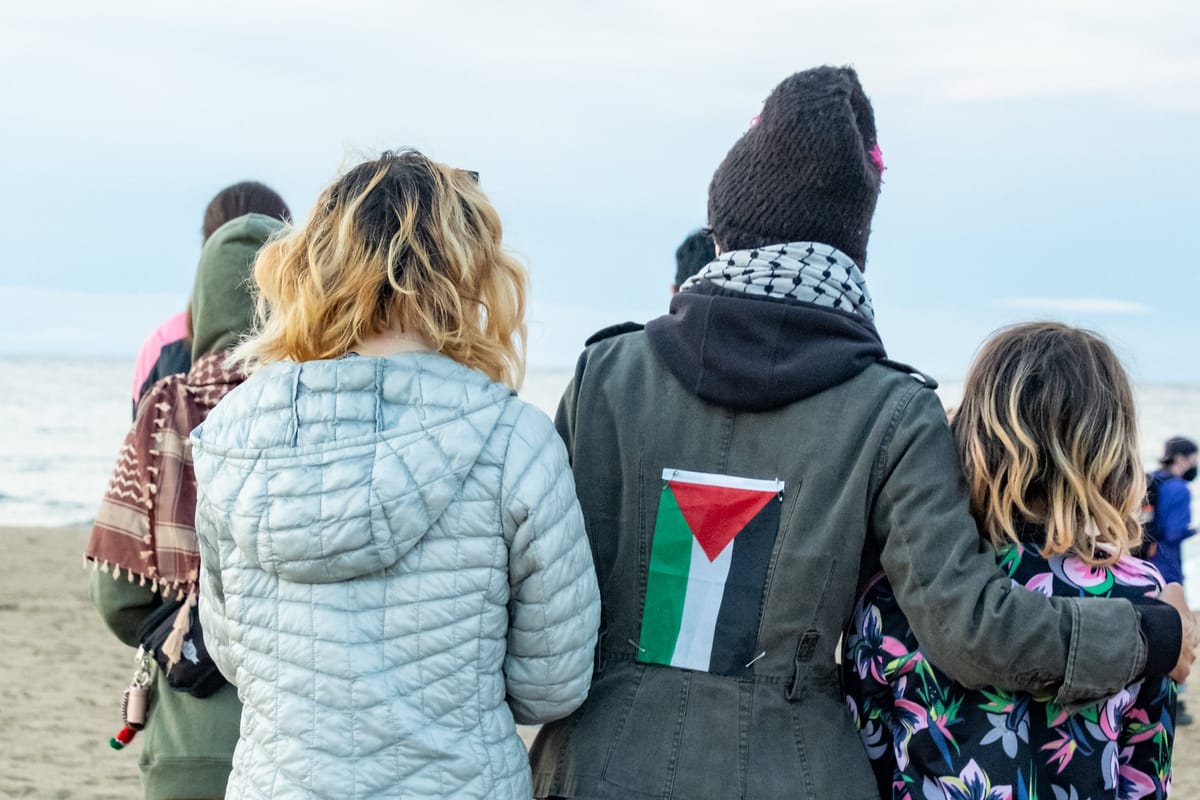
On Tuesday, mourners gathered at Foster Beach in Chicago to hold a vigil for Gaza. I co-organized the event alongside friends from Rad Rogers Park, Jewish Fast for Gaza, and Songs for Ceasefire, in order to create a space where our community could grieve for Palestinians killed during Israel's recent attacks on so-called safe zones in Rafah. The vigil included music, poetry, prayer, reflections, and calls to action. At the event’s conclusion, we dropped rose petals into Lake Michigan as a physical representation of the Palestinian lives being lost each day. During the event, I gave a short talk about the importance of collective grief. I am sharing those words here today.
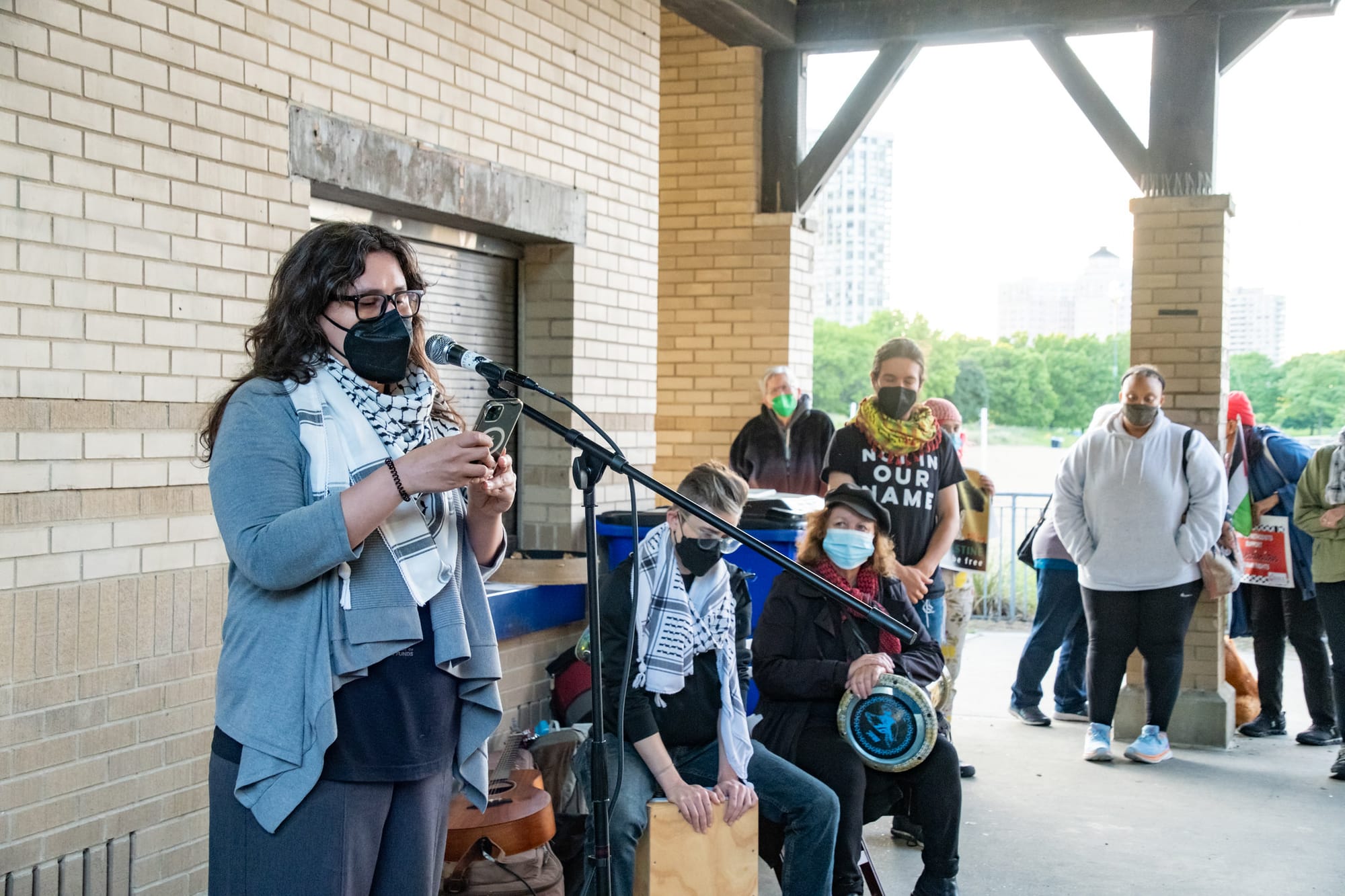
Greetings, friends. I come here tonight in grief and in gratitude. I am grieving the stolen lives of our siblings in Palestine, including those who were murdered in their tents in Rafah over the last few days. We know that Palestinians are being killed, with each passing day, by Israeli bombs, by the violence of starvation, and by a siege that strips them of medical care. We know this, and yet, when we hear that people are being burned alive in their makeshift shelters, where they had huddled under tarps and between strips of nylon to care for themselves and each other amid intolerable conditions… when we see the torn body of a child in a loved one’s arms… new waves of horror rip through us, and we are moved to rage and grieve together. I am grateful to you all for coming here tonight to share in this moment of collective grief, undeterred by the rain and other inconveniences. I am grateful for acts of collective grief because they represent our determination to resist dehumanization–including our own dehumanization. Please believe me when I say that while Palestinian lives and liberty are at stake, our humanity, our decency, and our ability to fight for and embody justice in this world are also at stake.
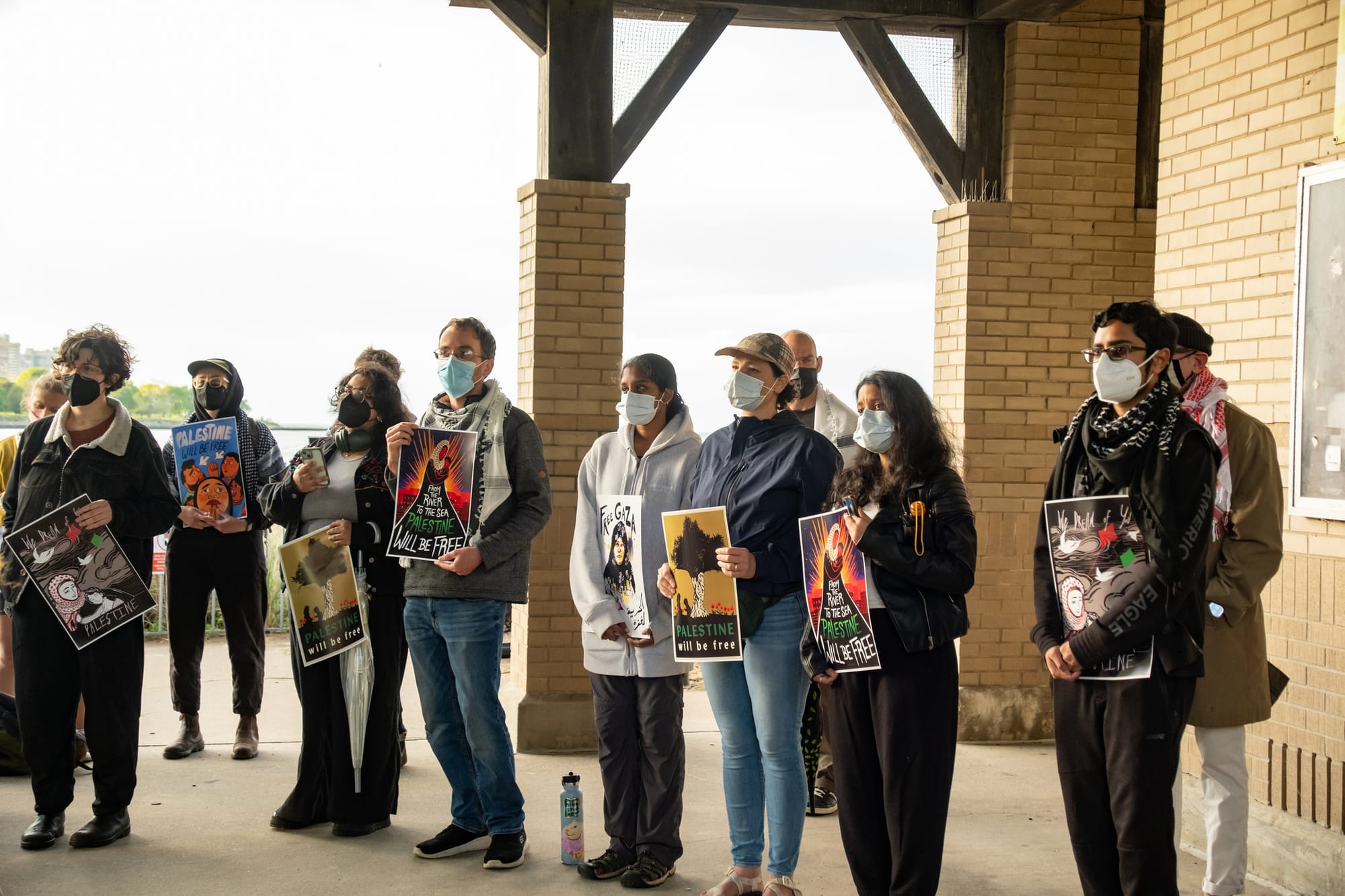
Normalization can be a form of quiet violence. It can reshape our inner and outer lives, eroding our values and stripping away our will to resist what we know to be evil. Who would I be, in this moment, if I did not grieve for the lives being destroyed in Gaza? I would not be the same person I was a year ago, and I would not be the person I want to be today or tomorrow. I know that some of us are wary of describing the hurt we feel over the tragedies unfolding in Gaza. After all, we are not the ones going hungry or living in fear that we or our loved ones could be blasted apart by shells or bombs at any moment. Sometimes, we may feel like we just need to get over ourselves because our feelings are not the issue amid so much suffering and terror. Sometimes, there’s truth in that sentiment. We live in a self-obsessed culture, and our feelings aren’t always the most important thing. However, I want to lovingly remind us all in this moment that we need to nurture the parts of ourselves that feel other people’s pain. We have to honor those tender parts of ourselves because when those parts of us harden or go numb, our capacity to do good is diminished, as is our capacity to love.
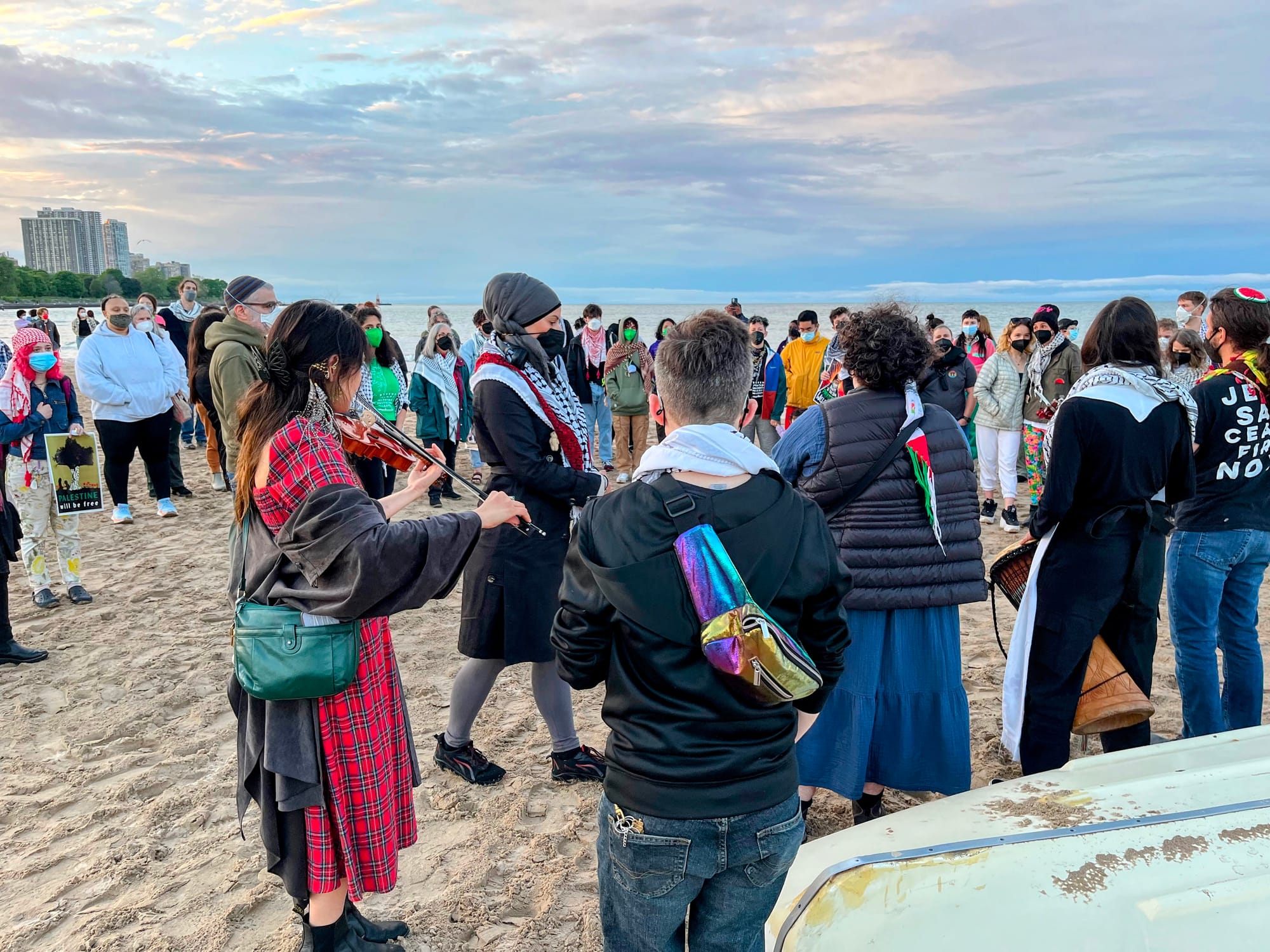
Grief is an extension of love. I grieve for my siblings in Palestine because, on a human level, I love them. I love the people who died horribly in those tents. I love the child whose body was cut apart by bombs. As an oppressed person, as a Menominee person, as someone who believes in Palestinian liberation, and freedom for all people, my heart is full of love for the people of Palestine, and that love has a cost. The moment I exempt myself from that cost, I will lose a part of myself, and I believe we all need those parts of each other–the parts that ache, and weep, and scream, “How do I live in this world?” We need those parts of each other so that we can grieve in collectivity, and love in collectivity. We need those parts of ourselves and each other because that pain that we feel is the sensation of our bodies and souls rejecting the kind of suffering and wickedness that should not exist in this world. We need those parts of ourselves and each other, because without them, we might hide from the feelings that keep us human amid crisis and catastrophe.
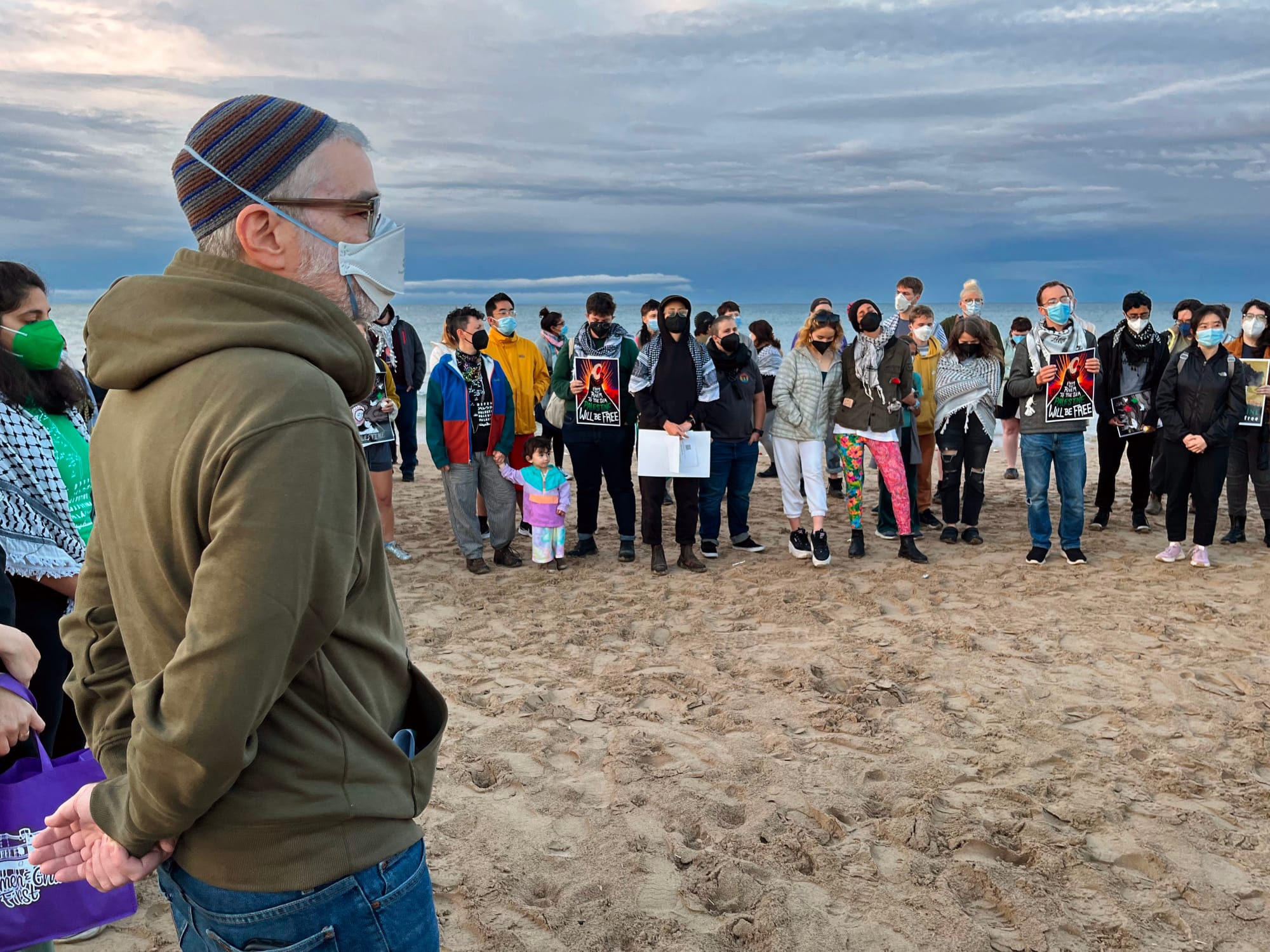
In grief, we know the value of life more so than we ever have or will. In grief, there is moral clarity, and we are reminded that the world can and must be different. The justice, kindness, and liberation that our heaving hearts, lungs, and spirits cry out for are not the stuff of fantasy but are possibilities worth living and fighting for. There are new worlds and ways of living that, amid so many terrors, can only be born of grief. To break free of the normalization of mass death, mass murder, and human disposability, we must make space for the upheaval inside of us that rejects all of these evils, like an immune system attacking what does not belong, because life depends on it. Life is what we uphold, what we affirm, and what we love and want for each other. We are its defenders, and tonight, we defend life by affirming its value, by refusing to go on with our days without acknowledging its loss, by weeping together, by sharing words and images that remind us of a shared purpose.
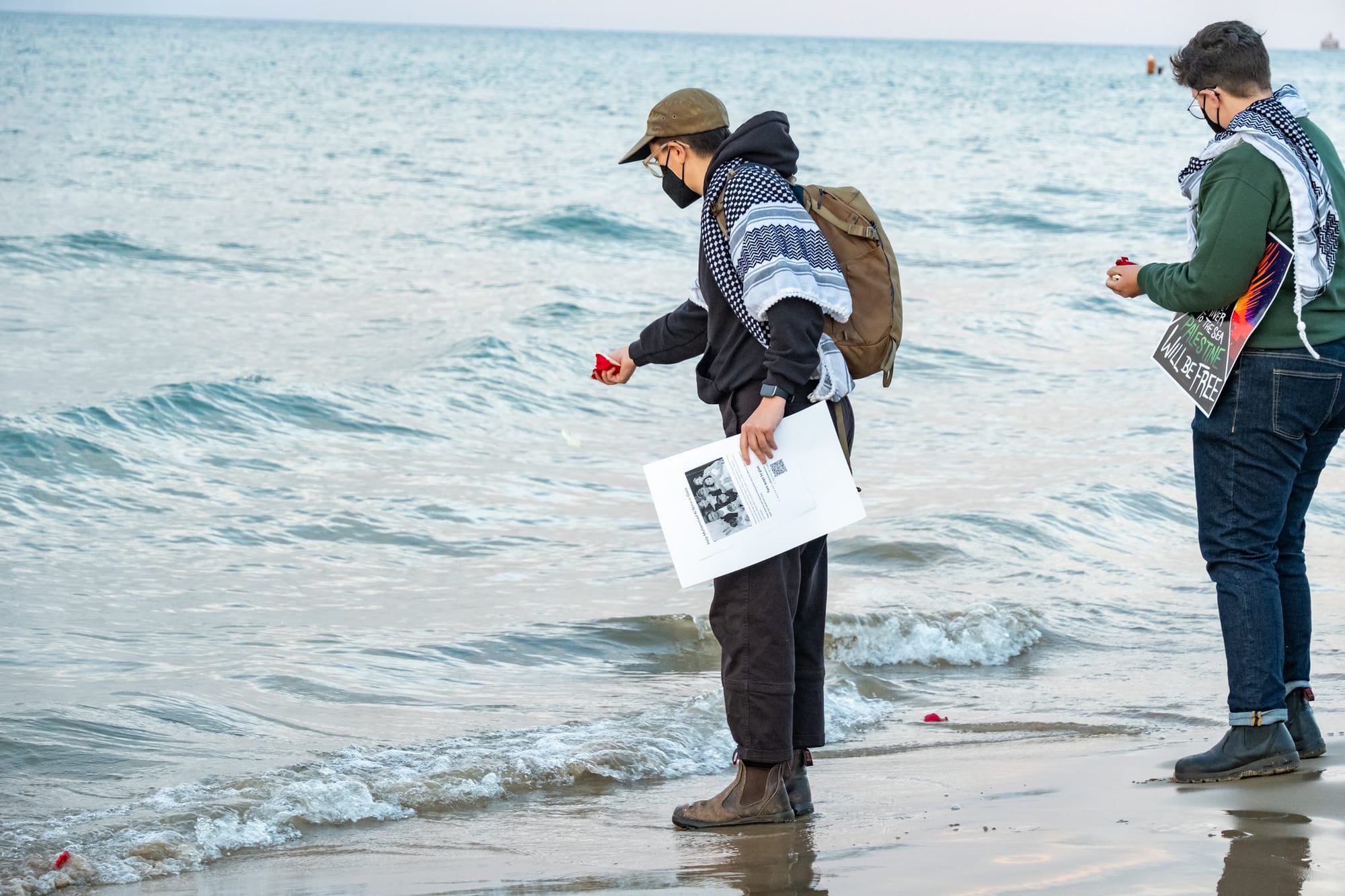
I know that for some people, simply grieving together may be less than satisfying, as we ought to be shutting the whole world down for Palestine. I will answer those feelings by saying that the purpose of grief is not satisfaction. I did not come here tonight to feel satisfied. I came here to honor my pain and yours and the pain of our siblings in Palestine because to defend their humanity, I must defend mine and yours. I must hold onto the parts of myself that know when it’s time to stop and grieve out loud. As Cindy Milstein writes in Rebellious Mourning, “When we open ourselves to the bonds of loss and pain, we lessen what debilitates us; we reassert life and its beauty. We open ourselves to the bonds of love.”
I would add to that sentiment that if there is courage to be found in this moment, and God knows we need the courage to act right now, I believe that we will find it in each other.
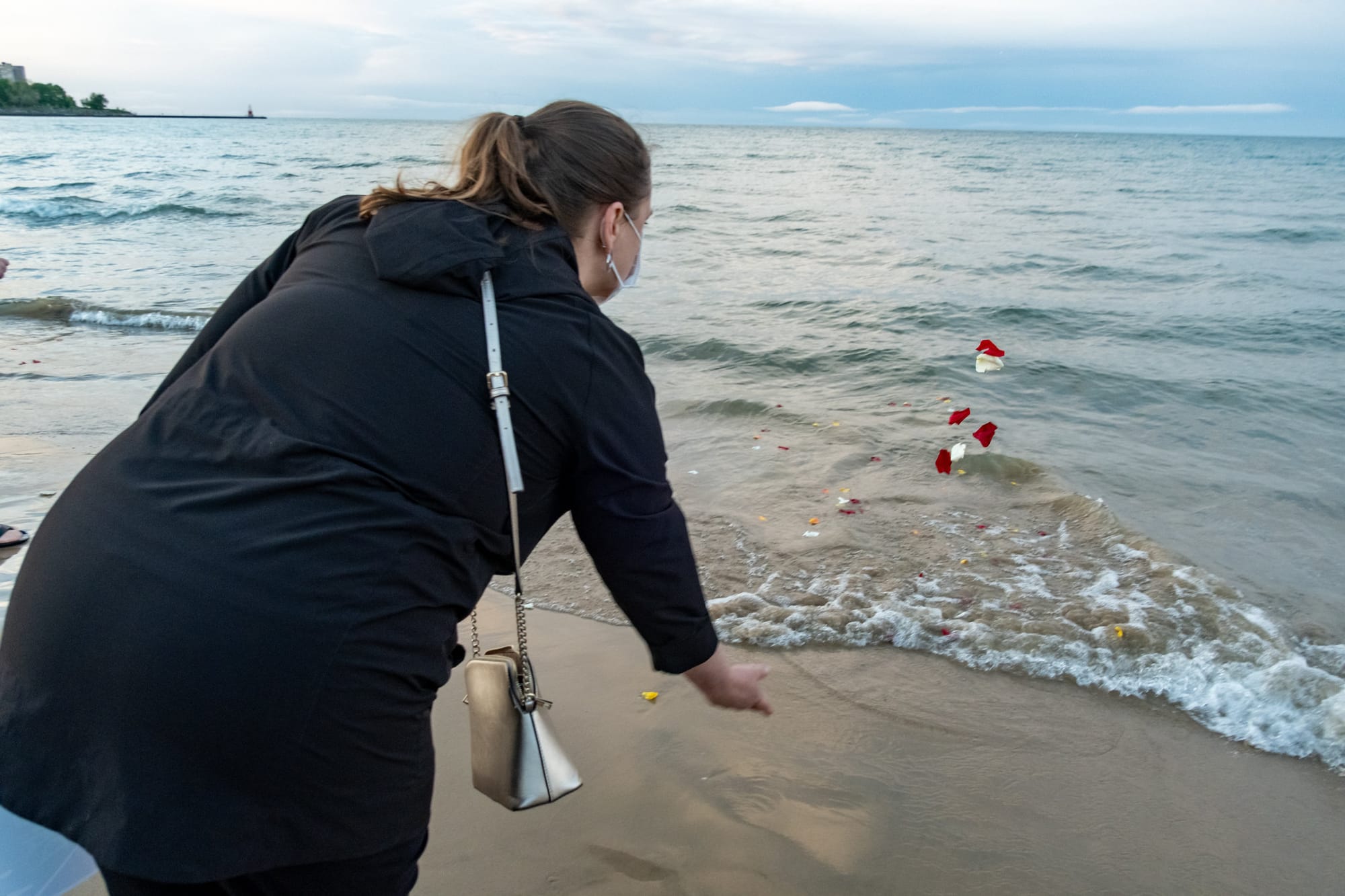
In our collective grief, we make meaning of our own lives in opposition to the brutal norms that would define us. In isolation, our hurt, grief, and softness will avail us nothing, which is why I am so grateful to my friend Maya Schenwar for inviting me to collaborate with her and other dear friends and co-strugglers to organize this vigil. As Mariame Kaba tells us, “Everything worthwhile is done with other people.” It is in collectivity that our grief has transformative potential. So I come here in gratitude for the lake, for the rain, for the poetry and pain people have shared tonight–for everything that grounds us in our shared humanity. I am grateful for the faithful and the nonbelievers and for all of our quiet sobs and deep breaths. I am grateful for our fellowship and for the solidarity of movement artists like Thao Tran, Molly Crabapple, Roza Nozari, and Christine Irving–who all donated their artwork to a public drive so that people like us could hold their work in our hands at Palestine solidarity events like this one. Acts of solidarity can travel and, sometimes, run circles around the world or even help to transform it. So, I come here in grief and gratitude for the power and the potential of mourning, solidarity, and friendship. I come here with hope so that I might share some of mine with you if that’s what the aching, soft parts of your soul need tonight. I have come here to say out loud, through tears if I must, that Palestine will be free. I have come here to grieve with you so that we might continue the fight together.
